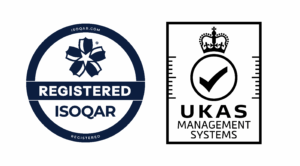How CX can help businesses thrive during periods of political paralysis
The UK economy has been in a stop-start mode all year, with growth disrupted by the various Brexit deadlines.
Brexit has been given a great deal of political airtime, but no one has been able to confidently predict the effect it will have on businesses or consumers, although many have tried.
For Synthetix, the issue is and less about political egos and more about how a departure from the EU will affect our current and future clients, the facts of risks, potential threats, benefits and difficulties of both sides of the argument so that businesses can begin to make informed decisions around planning for the future.
We’ve been talking about Brexit for more than three years now and even if we exit on 31 January 2020, negotiating permanent trading relationships will not happen overnight. And with little clarity emerging from Westminster and the population now bracing itself for another General Election, businesses are still none the wiser as to what’s around the corner.
“Never let a good crisis go to waste.”
The infamous words of Winston Churchill contain a recognisable truth which is why they have resonated into an adage frequently deployed during times of uncertainty. But uncertainty requires an answer. Uncertainty requires action because the alternative is procrastination and stagnation. In uncertainty, lies opportunity.
On the face of it, during times of trouble, it might seem sensible to sit on the sidelines, reducing spending and not investing in ‘non-essentials’ such as marketing or technology. Yet it’s a false economy.
As it is with recession, so it is with the potential implications of Brexit.
Uncertainty opens new avenues as companies and organisations flex and change.
In the race to not only survive, but thrive against competitors, it might seem difficult to excel in the turns when others pushing down hard on the breaks. However, during the last period of uncertainty – the financial crisis in the late 2000’s which caused the deepest UK recession since the Second World War – 20% of companies in the bottom 25 percent soared to the top by end of the recession. They did so not by falling into a cost-cutting trap like others, but by increasing efficiency and investing in customer experience before the downturn hit.
During difficult times consumers have a choice about where they spend their money. Better customer experience (CX) will not only help businesses weather the uncertain outcomes of Brexit, it will can put them in a position to excel.
Businesses that have thrived during times of financial uncertainty, fought against the cost reduction tactic of redundancy to cut costs. Instead they searched for opportunities to automate repetitive tasks with technology and reskill employees for more rewarding work to drive customer success. Investing their efforts in this way, realised not just cost-savings, but opportunities to reroute gains to customers — which meant they stayed around longer giving them a higher lifetime value.
In fact, during the last recession, while Office Depot cut it’s workforce by 6 percent, their competitor, Staples increased theirs by 10 percent. This allowed Staples to serve their customers better, alongside a reorientation around offerings such as personalised printing, business and technical services. The next three years saw Staples, on average, to be thirty percent more profitable than Office Depot. And more recently, 2015 saw Staples acquiring Office Depot.
Now is the time for businesses to show their clients that they care. Furthermore, now is the time to demonstrate their utility – to answer their questions and provide sensible improvement where necessary. Now is the time to invest in automation and train employees in areas that have a direct correlation to customer experience.
It’s time to evoke those inspiring words again
Irrespective of what happens to the UK over the next few years, customers will always have questions that need answers.
Brexit is an opportunity to get closer to your audience. It is an opportunity to refocus efforts and be genuinely helpful to existing and potential customers. It’s an opportunity to do customer experience better than before. Do this and you will reap the rewards. Can businesses afford, given the risks to their reputation and revenue to do nothing?
For more insight into the delivery of enhanced customer experience the following articles may be of interest:
E-tail is NOT the enemy
The ultimate tech stack to improve CSAT and agent efficiency
The first step towards AI can benefit the bottom line

